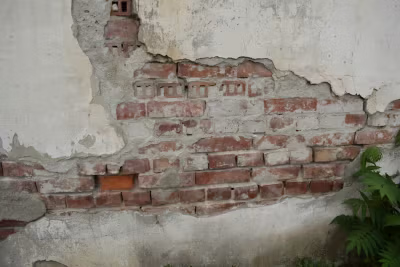In the vibrant landscape of Colorado's construction industry, payment disputes can cast shadows over even the most promising projects. For contractors, ensuring timely compensation is vital for sustaining business operations and maintaining financial stability. But what happens when there's no formal contract in place? Can a contractor still pursue legal action for non-payment? Let's delve into the nuances of Colorado construction law to shed light on this common concern.
Understanding the Importance of Written Contracts
Contracts serve as the backbone of any construction project, outlining the rights, responsibilities, and payment terms for all parties involved. Ideally, a comprehensive contract should detail project scope, timelines, payment schedules, and dispute resolution mechanisms. However, in the real world, not every project proceeds with a formal written agreement in place. So what happens when there is no written contract between the parties? Can a Contractor Sue for Non-Payment Without a Contract?
The Role of Implied Contracts
In Colorado, contractual relationships can be established through various means, including verbal agreements, written communications, industry customs, and even past dealings. Even in the absence of a formal contract, a court may recognize the existence of an "implied contract" based on the actions and communications of the parties involved. For instance, if a contractor provides services at the request of a property owner and the owner accepts those services without objection, an implied contract may be inferred.
Other Legal Remedies for Non-Payment
When faced with non-payment for work performed, contractors in Colorado have legal avenues to pursue compensation, even in the absence of a written contract. Here are some key options:
Quantum Meruit: Latin for "as much as deserved," quantum meruit allows a contractor to recover the reasonable value of services rendered or materials supplied, even without a formal contract. To succeed in a quantum meruit claim, the contractor must demonstrate that:
They performed services or provided materials.
The property owner benefitted from those services or materials.
Payment is reasonable and commensurate with the work performed.
Promissory Estoppel: In certain situations, a contractor may invoke the doctrine of promissory estoppel to enforce a promise made by the property owner, even without a formal contract. This typically occurs when:
The property owner makes a clear promise to compensate the contractor.
The contractor relies on that promise to their detriment.
Enforcing the promise is necessary to prevent injustice.
Mechanic's Lien: Colorado law provides contractors with the right to file a mechanic's lien against a property if they haven't been paid for construction work. A mechanic's lien creates a security interest in the property, making it difficult for the property owner to sell or refinance until the debt is resolved. For a more detailed discussion regarding mechanics' liens in Colorado, check out our article, An Overview of Mechanics' Liens in Colorado: What You Need to Know
Consulting with a Colorado Construction Contract Lawyer
While pursuing legal remedies for non-payment without a contract is possible, navigating the complexities of Colorado construction law requires expertise and precision. Consulting with experienced construction contract lawyer can help contractors assess their options, gather evidence, and pursue the most effective course of action to secure payment for their services.
Conclusion: Can a Contractor Sue for Non-Payment Without a Contract?
In the world of Colorado construction, payment disputes can arise unexpectedly, even in the absence of a formal contract. However, contractors are not without recourse when faced with non-payment. By understanding the principles of implied contracts and leveraging legal remedies such as quantum meruit, promissory estoppel, and mechanic's liens, contractors can assert their rights and seek fair compensation for their hard work and dedication. Remember, when in doubt, seeking guidance from knowledgeable legal professionals is the key to navigating the complexities of construction law and safeguarding your interests.
Have Questions About Contractor Disputes?
Our experienced construction defect attorneys are here to help. Schedule a free 15-minute screening call to discuss your situation.




